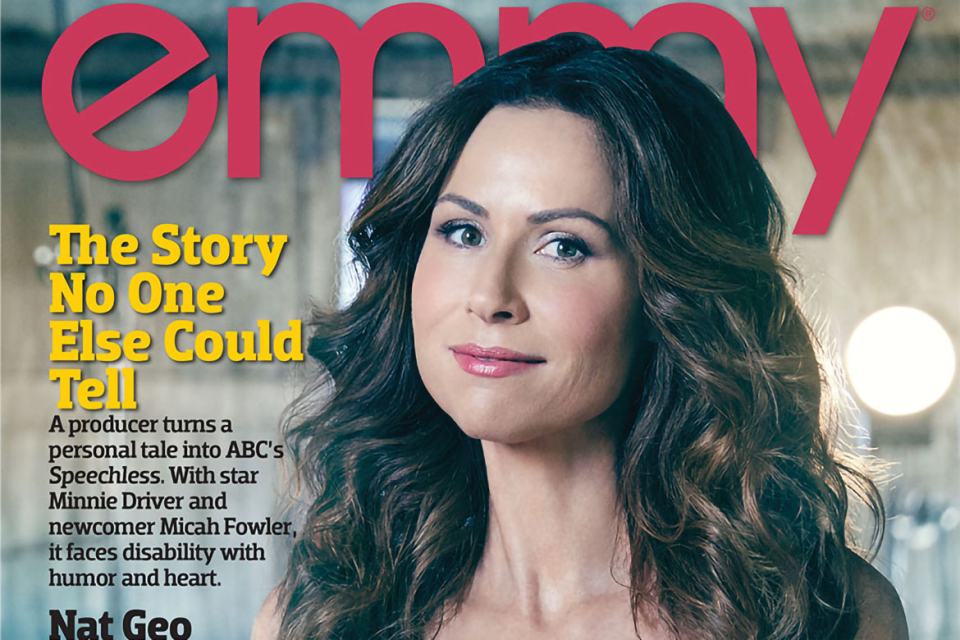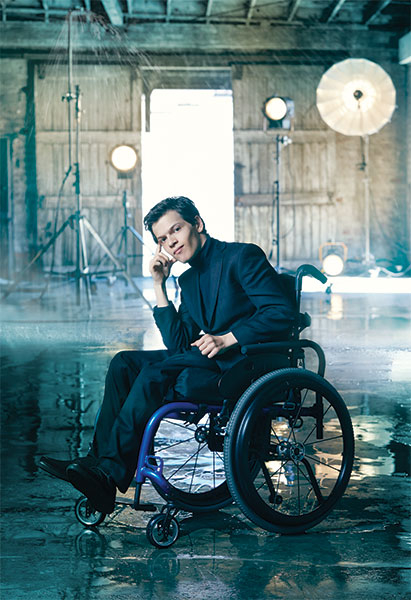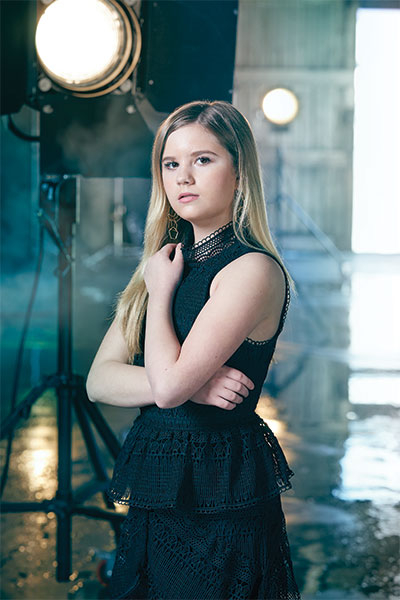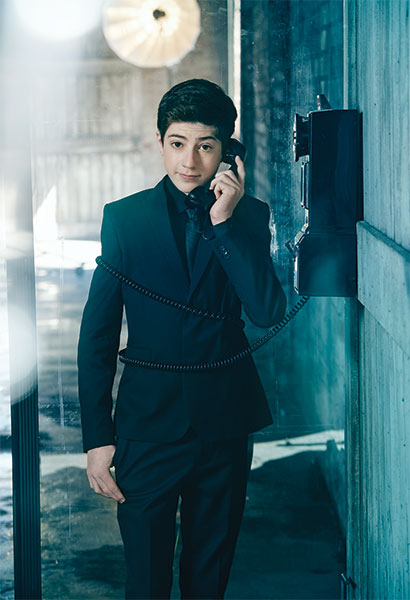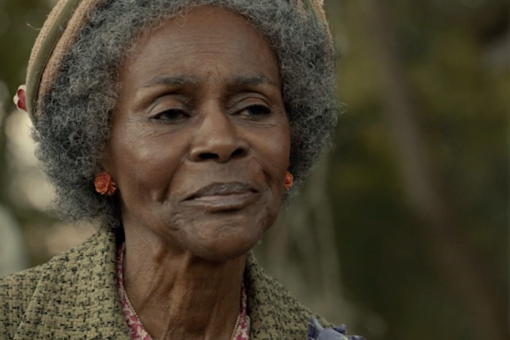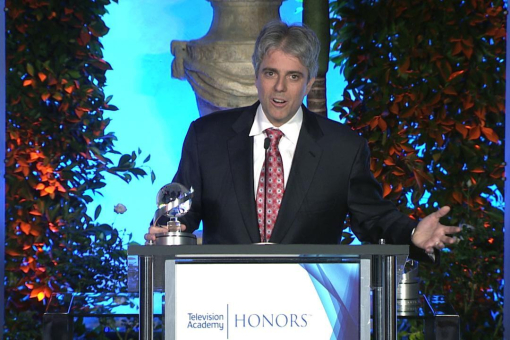Hollywood may not have invented hyperbole, but it certainly has fine-tuned the art.
A new show is hailed as the top-rated comedy of the night — when it's the only comedy of the night — and emergency recasting is called a brilliant creative decision. Shows are dubbed groundbreaking as a matter of course. Speechless is that rare program that deserves the accolade.
The sitcom, about a family of five that moves to an affluent suburb to secure better care for a son with a disability, stars established actors Minnie Driver (Grosse Pointe Blank) and John Ross Bowie (The Big Bang Theory) as the parents and Cedric Yarbrough (Reno 911) as Kenneth, the janitor-turned-aide. But it's newcomer Micah Fowler who takes the show into uncharted territory.
As J.J. DiMeo, a wheelchair-using high school student with cerebral palsy, Fowler makes Speechless the first broadcast-network comedy to feature an actor with a disability in a major recurring role. Before a line of dialogue had been uttered (in J.J.'s case, through his aide-interpreter), Speechless was already pretty radical.
While J.J. isn't the only physically challenged character on television, he's by far more the exception than the rule. According to the Ruderman Family Foundation, an advocacy organization, persons with disabilities make up 20 percent of the population but account for less than 2 percent of all television characters. and 95 percent of those tv roles go to non-disabled actors.
But the most powerful message of inclusivity doesn't matter if the tone is pandering and the content boring.
"When I first heard about the script, I had a little trepidation," admits Bowie, who plays affable dad Jimmy DiMeo. "I thought it could be very preachy or very saccharine, but that idea disappeared three pages in. In the cold open, J.J. flips someone off with three fingers held together, because his cerebral palsy prevents him doing it with just one. You wouldn't see that on Life Goes On, no disrespect intended."
There's clearly no effort to tug at heartstrings: in various episodes, Kenneth organizes a special-needs "death match," middle child Ray (Mason Cook) gets into trouble at school for a "nipple pic," and youngest sister Dylan (Kyla Kenedy) considers losing a foot race to appease a heartless insurance adjuster.
"If you want to make a statement, you will fail," says showrunner Scott Silveri, who executive-produces the series with Jake Kasdan and Melvin Mar. "My goal is 100 percent to make an entertaining show and tell interesting stories about characters people like and care about. Everyone wants to perhaps shine a light on [issues surrounding disability] and show that these kids aren't so very different, but that can't be what I'm focused on."
So far, so good. In 2016, Variety praised the show for "combining fairly well-defined characters with regular infusions of deft intelligence and dry wit," while The Hollywood Reporter credited the pilot for "being tartly funny while almost accidentally being sweet, too." And Speechless scored a 98 percent fresh rating on Rotten Tomatoes.
Neil Genzlinger, a critic for The New York Times whose daughter has Rett syndrome, a rare brain disorder, says Speechless works as a sitcom while still addressing some of the specific challenges facing special-needs families.
"I think they're doing it all really well," he says. "I like the way Silveri sort of explodes one myth or misconception about disability each week, and he's hit a couple issues that have always irked me. For example, the 'inspiration porn' episode [in which J.J. becomes unwitting subject matter for a hero-themed school essay contest] was brilliant."
Silveri grew up with a brother with a disability, so he drew on personal experience to create the show. "One thing that Scott said that really resonated with us was that growing up in his house had its problems and challenges, but he didn't know another family that laughed as much as his did," says Lynn Barrie, vice-president of comedy development at ABC Entertainment Group.
Despite that first-person experience, Silveri — after landing a development deal with Twentieth Century Fox Television — didn't initially push to make Speechless his next project.
"At the risk of sounding like a corporate stooge, a big part of why I ended up going down this road was the insistence on the part of the studio to tell a story no one else could tell," he says. "I had a number of ideas I was enthusiastic about, and they said, 'No — write what only you can do.'"
Despite the "you do you" push, Fox Television Group co-chairman and CEO Gary Newman admits, "I would be lying if I didn't say the thought went through our heads: 'Good luck making that story a laugh riot.' Clearly, there's a lot of sadness in the idea of someone suffering from [cerebral palsy].
"But if you're going to tell people in a studio and a network you want them to take big, bold swings and tell stories that are unique, you've got to be willing to stand by that."
It took two seasons of development to nail down the show's tonal complexity, which veers from wrenching emotional truths to broad comedy, often in the same episode.
"I give the studio executives a lot of credit," Newman says. "There were two full years [Silveri] spent developing this show, and it would have been easy to say, 'Hey, it didn't work out, what about a typical middle-of-the-road sitcom?' But the studio responded to his passion, and we have to give him a lot of credit because he also stood by his passion."
Silveri allows that Speechless may have benefited from how broadcast-network programming has changed in response to new shows on basic cable and players like Netflix, Hulu and Amazon. "I think network executives have stopped thinking there's any one show that everyone will watch," he says.
“Having to compete with cable and streaming, and being in competition with so many outlets, has encouraged some openness to shows about people you haven’t seen a million times before.” The Speechless team worked to involve the disability community at every level.
“J.J.’s very different from my brother, whose disability is far more significant,” Silveri says. “This is not ripped from my life. We do research, and we have a number of people who consult on the show whose experience is a lot closer to J.J.’s.”
One of them, Eva Sweeney, has cerebral palsy, and her easy chemistry with her aide led Silveri to make at least one major change. Rather than have J.J. use an augmentative and alternative communication (AAC) device, Silveri gave him an aide, who eventually became Yarbrough’s character.
But even extensive research doesn’t make it easy to turn the topic of disability into family comedy.
“If it was too glib, it would have given the people with this disability short shrift, but I thought, ‘Maybe we can go for both big silliness and sincerity,’” says Silveri, who notes that creating Go On, a short-lived NBC comedy focused on a grief support group, gave him “a little confidence to attack this stuff.”
He adds: “I was complaining to my wife once: ‘Why is this so hard? I just want it to be funny!’ And she said, ‘For somebody who just wants it to be funny, you write these shows about dead wives and disabled people.’”
Executing the show’s dramatic tonal shifts through the 23 episodes of season one wasn’t always a breeze in front of the cameras, either.
“It’s funny, because when I watch the show, there’s such an ease to it, but it’s a difficult show to do because you’re making these big turns,” says Driver, who plays fiercely protective mom Maya DiMeo.
“There will be physical comedy, then these emotional moments. They’ll be brief, and you have to go there. It’s not easy. It’s challenging and that’s why I like it. It’s not just, ‘Go for the joke and break’. It’s myriad and varied and plays on different levels of emotion...”
For the rest of the story, pick up a copy of emmy magazine, on newsstands April 18.
Go behind the scenes of emmy's cover shoot with the cast of Speechless. Visit TelevisionAcademy.com/cover.
This article originally appeared in emmy magazine, Issue No. 3, 2017

